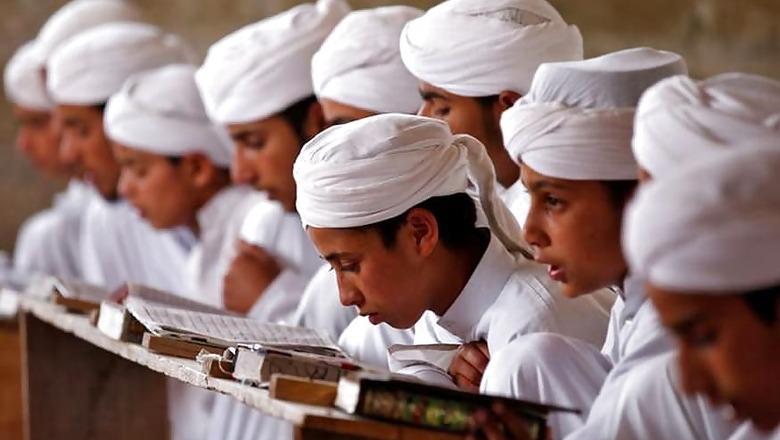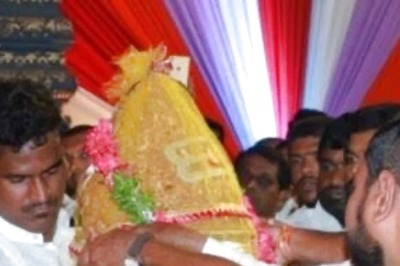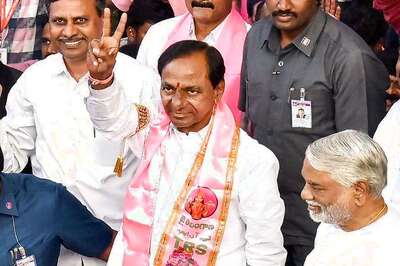
views
Education has the ability to transform an individual, communities, societies and the nation at large. Yet, more than seven decades down the line, we are still a developing country.
Is it so because the purpose of education has not been realized in the true sense? If education has the potential to transform societies thus nations, then why was education not explored to the fullest extent possible?
Have we not explored education as an instrument of change for one and all? If it was attempted then why there is so much visible disparity in the educational figures from states to states, from caste to caste, one religion to the other and within country’s minorities? The concept of minority evolved in different phases and in due course of time was thus simplified in the later years from religious minorities to national minorities. Isn’t it an alarming scene?
According to Hilal Ahmed, associate professor, Centre for the Study of Developing Societies (CSDS), the term minority was constitutionally never defined. The official status of the concept called minority only changed in 1992 while National Commission for Minorities was being established. The task of this Commission was to look at the religious minorities. In the later years and by early 2000, another declaration was made with regard to identifying ‘the national minorities’. But before that, minorities were always considered as an impermanent category with regard to state population. That changed in 2000.
On the question of challenges, Ahmed said, “The challenges for each group of the minority are different and it is varied from one another as well. For instance, poverty is the biggest challenge before the Muslims if we talk of minority education in India and poverty is also linked to unemployment and basic facilities, therefore, it has to be looked into such broader contexts.”
The country has debated minority education from time to time since Independence for one or the other reason. During this process, various governments announced schemes, formed committees, commissions, established the ministry of minority affairs and even declared Prime Minister’s 15 point program. Has it really served the purpose? Not in the desired manner. The figures speak volumes about the real position of minorities on the educational parameter. According to 2011 census, the literacy rate of Muslims stands at 68.53 percent, which is lowest among all minority communities and also less than the national average of 72.98 percent.
The Sachar Committee Report had clearly mentioned that Muslims were on the bottom of the social indicators, including education, and even worse than the Dalits in some spheres. However, the National Policy on Education 1986, which was further updated in 1992, was also aimed at paying greater attention towards the educationally backward minorities for the sake of equity and justice.
Despite the best Constitutional provisions guaranteed to minorities for the educational purpose, the outcome has not been satisfactory. Who is to be blamed for that is a big question today? Can we simply put the entire blame on the governments? Are we not responsible in any way?
Zafarul-Islam Khan, chairman of Delhi Minorities Commission and former president of All India Muslim Majlis-e-Mushawrat, said, “Although as a minority, Muslims in India enjoy special rights to establish and run educational institutions from KG to university levels, they have not effectively used this right. Even the institutions established by our forefathers’ decades ago, even before Independence, are in the bad shape, physically and educationally. The story is same all over north India. Muslims in the south India are much better in this respect.”
“People talk of establishing universities while the real need is to establish good schools. Universities are aplenty, including the government-run ones but good schools are few and far between and our children don’t get admission in the good schools. Once children get a good education, they will not find it difficult to enroll in the best universities at home and abroad,” he added.
“One more problem is related to madrasas that remain hell-bent not to introduce any modernisation. They reject to introduce modern subjects. The result is that madrasa graduates are unfit to lead Muslims let alone lead the country and the world. We must develop madrasas which offer both religious and modern education to offer their graduates degrees accepted by the world,” he said.
Raising similar concerns on the present status of Muslims in education, former AMU vice chancellor, Lt Gen Zameer Uddin Shah, said, “The present position of the Muslims of India is the same as during the time of Sir Syed. They remain marginalized, underemployed and impoverished, primarily because of a weak educational foundation. The youth cannot qualify in open competitive examinations for admissions into prestigious educational institutions like IITs, IIMs, and NDA etc. The lucky few, of affluent families, who have the advantage of good schooling, can hold their own against the very best in the country.”
Muslim children are deprived of good schooling because their parents cannot afford the same. In many cases, youngsters are put to work to supplement the family income. The daughters are married off early. The saving grace has been the madrasa education. Had it not been for these seminaries a large number of Muslims children would have been bereft of any education at all? The madrasas are a huge educational network but have now to reorientate their syllabi to make it broader based according to the needs of the time, Shah said.
But according to Jawed Alam Khan, who is an adviser to Institute of Policy Studies and Advocacy, New Delhi, “One of the main reasons of educational backwardness among the large sections of Muslim population in India has been due to their extreme poverty, perceiving low rate of economic return from education and less focus on attaining modern education both in the pre and post-Independence period.”
At the same juncture, the partition of the sub-continent led to many problems relating to the issues of identity and security which Muslim community in India faced in the form of communal riots in the recent past and also discrimination in almost every sphere of life.
On the present issues and possible way outs, Jawed suggests that the issues of identity, security and stigmatization of Muslims in pre and post-Independence have emerged as a major hindrance for addressing the equity-related issues including education. Further, there has been continuous neglect on the part of the Union and State Governments in addressing educational deficit among the Muslims since Independence. In general, there have been overall gaps in policies, scheme designs, budgets, and poor implementation of education-related programmes. To improve the educational status of Muslims, there is a need for community action to run educational institutions along with trying to improve the level of access to the facilities available in the public education intuitions.
As we move from here onwards, researchers should now find out in what manner poverty, minority syndrome, retroactive approach, ghettoisation or lack of required educational leadership, or any kind of atmosphere builds up after the riots may have hampered the educational growth of Muslims in particular and other minorities in general.
Mohd Naushad Khan is a journalist. Views are personal.




















Comments
0 comment